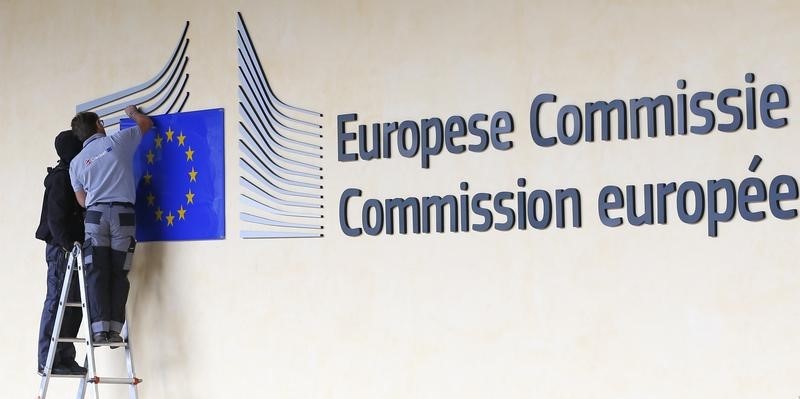By Huw Jones
LONDON (Reuters) - The European Union looks set to reduce capital charges on some securitised debt to revive a market that triggered the global financial crisis, but is now seen as key to funding the region's flagging economy.
The EU's executive European Commission said it was planning to create a new class of high quality, simple, asset-backed securities that could benefit from lighter capital requirements, and help to plug funding gaps in Europe.
The plan is part of the EU's broader Capital Markets Union (CMU) project which aims to unify markets by 2019 and make it easier for companies to raise cash on stock and bond markets.
Banks provide the bulk of funding in Europe now. The CMU, which was put out to public consultation on Wednesday, aims to emulate the United States where stock and bond markets generate most of the cash for the economy.
Europe's fragmented capital market has a stock market capitalisation that is only half that of the United States.
"The direction we need to take is clear: to build a single market for capital from the bottom up, identifying barriers and knocking them down one by one," said Jonathan Hill, the EU's top financial services official.
It was securitised debt, or asset-backed securities (ABS), based on pooled "subprime" U.S. home loans that turned toxic in 2007, sparking a financial crisis that ended up with taxpayers bailing out a string of banks on both sides of the Atlantic.
NO MAVERICKS
Under the new plan, Brussels is expected to loosen capital charges on top quality ABS to encourage banks to produce more, and insurers to buy it.
Some global regulators have been leery of such a move so far, leaving the EU to contemplate unilateral action, albeit not a return to the pre-crisis regulatory situation.
"There is no intention to undo what has been put in place in the EU to keep the door closed to highly complex, opaque and risky securitisation," the Commission said.
Securitised debt held up better in Europe during the financial crisis with far fewer defaults than in the United States.
The Commission said securitisation of loans to small and medium sized firms was still half pre-crisis levels and could generate 20 billion euros ($23 billion) of additional funding.
Hill said trying to revive safe securitisation was not a "solo maverick run" by Brusssels and was considered possible by "lots of brainy people".
Hill's CMU plan includes making it easier and cheaper for smaller companies to list on stock markets and tap money directly from investors. He wants fast progress involving as little new legislation as possible and instead to tweak existing EU rules and rely on industry initiatives.
"I don't think there are any quick wins," said Lachlan Burn, a financial services lawyer at Linklaters, saying the key would be to rework some existing EU rules, but it will not be easy.
Hill said the CMU was not a threat to banks but would widen choice for companies who need cash to grow.
Britain, the EU's biggest capital market, could benefit from such initiatives to increase trading turnover and will be relieved Hill's plans make no mention of a new "super-regulator" to hold sway over the City of London financial centre.
"If we get this right, the benefits to Britain and Europe's smaller firms could be huge, through opening up new sources of investment and growth across the EU," British finance minister George Osborne said.

Andy Baldwin of EY consultancy said Hill's plans do not address cultural and historical barriers to CMU and it could take a generation to stimulate demand for more funds from markets.